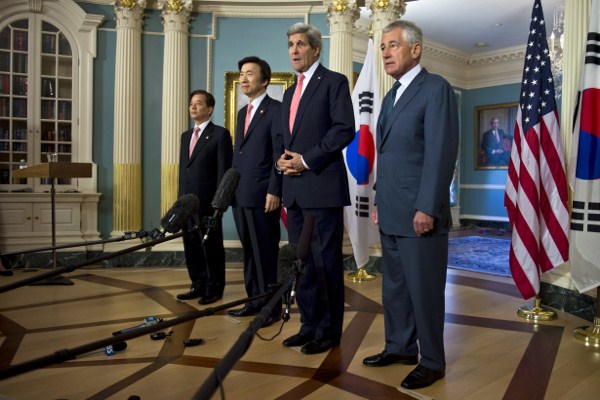The first so-called 2+2 meeting of the U.S. and South Korean foreign and defense ministers since Park Geun-hye became South Korea’s president took place last week in Washington. At the meeting, the two sides reaffirmed their global partnership and also made progress in walking back a commitment to transfer wartime command from U.S. to South Korean forces by the end of next year. However, South Korea and the United States have yet to overcome their differences regarding missile defense and how to counter North Korea’s new missile capabilities.
After years of tense talks on the issue between the two countries, visiting South Korean Defense Minister Han Min-koo and U.S. Defense Secretary Chuck Hagel finally agreed that conditions were not ripe for near-term transfer of wartime operational control to South Korea. They did not set a new date for the transfer, but instead cited the need for an improvement of the security environment on the Korean Peninsula and a strengthening of the South’s “critical” military capabilities before it could take place.
Hagel said that the postponement would “ensure that when the transfer does occur, Korean forces have the necessary defensive capabilities to address an intensifying North Korean threat.” These critical capabilities include enhancing South Korea’s command, control, communications, computers, intelligence, surveillance and reconnaissance (C4ISR) capabilities; acquiring precision-guided munitions and their associated delivery systems; and improving South Korea’s capabilities for maneuver and network-centered warfare. These capabilities will prove useful for conducting operations both in Korea and for extra-peninsular missions.

